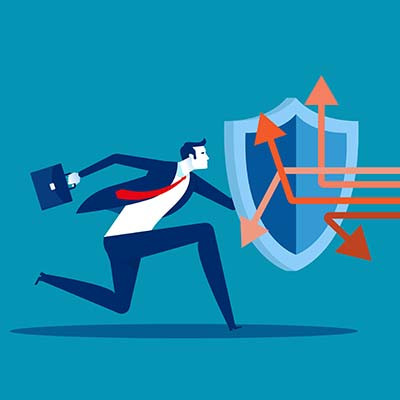Direct Technology Group Blog
Protecting Employee Data is Really Important
Privacy for business means a lot more than protecting the data and personal information of clients. It also extends to just about all data collected by a business, including that of the employees. How can you go about protecting this data without also violating the privacy of your employees themselves?
Employee Privacy Isn’t Something to Take for Granted
One particular Pennsylvania state Supreme Court ruling showcases just why it’s important to consider the privacy of employee data. This case was Dittman v. UPMC, a class-action suit that was filed after the University of Pittsburgh Medical Center and UPMC McKeesport had data stolen after hackers accessed the medical center’s systems and stole a considerable chunk of data. This data included personally identifiable information and financial details. Ultimately, the plaintiffs—the employees who had their data stolen—were victorious. According to the case, the hackers had used the data to file illegal tax returns, something which cost the IRS a pretty penny.
As a result of this case, the Pennsylvania Supreme Court established that “an employer has a legal duty to exercise reasonable care to safeguard its employees' sensitive personal information stored by the employer on an internet-accessible computer system.” On a larger, national scale, employees also have their privacy protected by the Privacy Act of 1974. All that said, we are not legal professionals, so you should not consider this legal advice; however, you are still responsible for protecting the data your employees provide to you.
Essential Steps to Protecting an Employee’s Privacy
Thankfully, the right technology can make protecting your employees’ privacy easier. Here are some ways you can accomplish this.
Private Wi-Fi Connections
A secure and private Wi-Fi signal can go a long way toward keeping threats away from your network. If you don’t implement a secure wireless connection, you are essentially putting any data sent or accessed over this connection at risk.
Internet Filtering
While many solutions will aim to keep threats off of your infrastructure in the first place, this one aims to help your employees keep themselves away from threats found online by blocking access to websites known to house them. You can also filter out websites that are known to waste time throughout the workday, like social media or streaming sites.
Virtual Private Network Use
VPNs are excellent ways to keep your employees secure when they are away from the protections of your in-house network, a concept which is especially important in today’s age of remote work.
Device Protections
Even the most basic protections, like antivirus, firewalls, and spam blocking, can be helpful in preventing the majority of threats. Be sure to have these installed on your devices, and ensure that they are properly activated and maintained at all times.
Access Controls
It’s a known fact that the less data someone has access to, the less damage that can be done if their account is compromised. You can also use other factors like two-factor or multi-factor authentication to ensure that only those who are authorized to do so can access specific information.
You Also Need to Respect an Employee’s Privacy, As Well
Naturally, there are also limitations as to what you can do with the data you collect from your employees, so it’s your responsibility to know what these limitations are and to ensure that they are followed. Be sure to consider protections, but also to respect the privacy of your employees.
Direct Technology Group can help you with this tough balancing act. To learn more, reach out to us at (954) 739-4700.



Comments